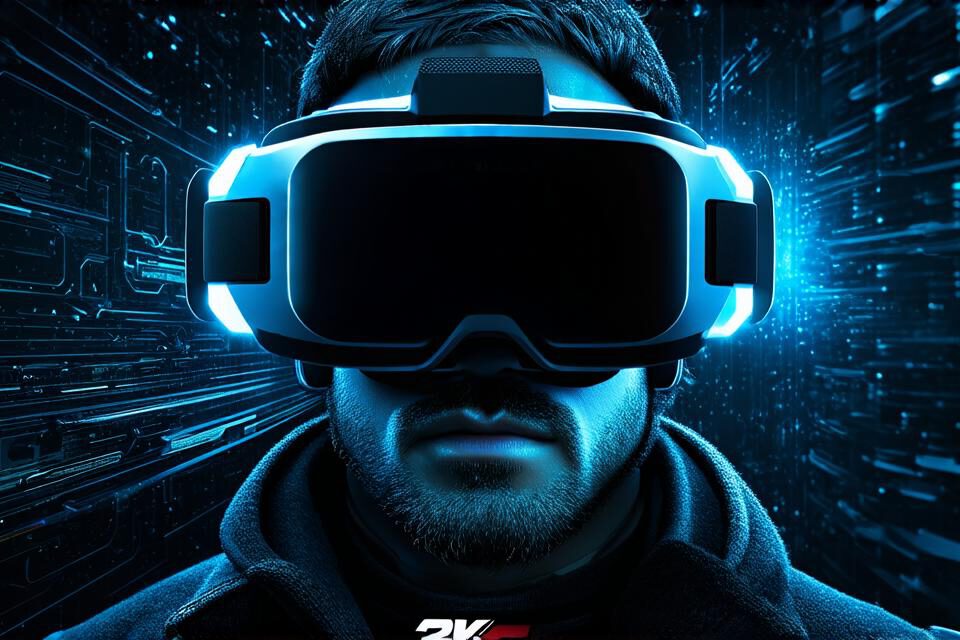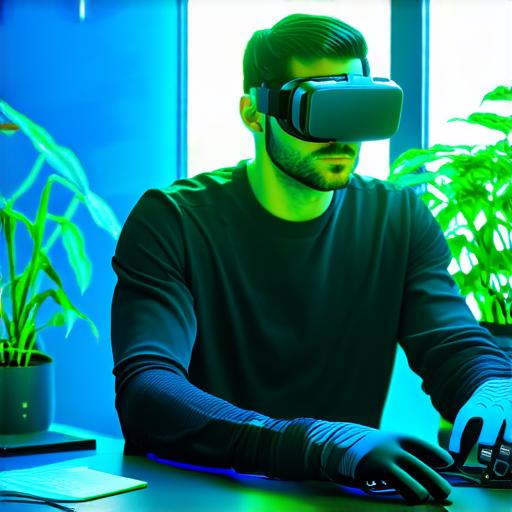Explore Exciting Virtual Reality Developer Job Opportunities

Virtual reality (VR) technology is transforming the way we experience and interact with the world around us. From gaming to education, healthcare, and beyond, VR has countless applications that are changing the lives of people all over the world.
Types of Virtual Reality Developer Jobs
Virtual reality development encompasses a wide range of roles and responsibilities, each with its own unique set of skills and requirements. Some common virtual reality developer jobs include:
-
Game Developers: Game developers create VR games that provide an immersive gaming experience for users. They use game engines such as Unity or Unreal Engine to build interactive and engaging games that can be played on VR headsets or consoles.
-
UX Designers: User Experience (UX) designers are responsible for creating intuitive and user-friendly virtual environments. They work with other developers to ensure that the virtual environment is easy to navigate, visually appealing, and provides a positive user experience.
-
Technical Artists: Technical artists create 3D models, textures, and animations for VR applications. They use specialized software such as Maya or Blender to create high-quality assets that are optimized for virtual environments.
-
Software Engineers: Software engineers build the underlying technology that powers VR applications. They develop algorithms, data structures, and other programming techniques to ensure that VR applications run smoothly and efficiently.
-
Content Creators: Content creators produce VR content such as videos, 360-degree photos, and interactive experiences. They use specialized software and equipment to capture high-quality content that can be used in VR applications.
-
AI Developers: Artificial intelligence (AI) developers create intelligent systems that enhance the user experience in VR applications. They develop machine learning algorithms, natural language processing techniques, and other AI technologies to make VR applications more interactive and engaging.
-
Network Engineers: Network engineers design and maintain the infrastructure that supports VR applications. They ensure that the network is fast, reliable, and secure, and that users can access VR content without interruption.
-
Quality Assurance Testers: Quality assurance testers test VR applications to ensure that they are free of bugs and defects. They use automated and manual testing techniques to identify issues and report them to the development team for resolution.
Virtual Reality Developer Salaries
The salaries for virtual reality developers can vary widely depending on the type of job, location, level of experience, and industry. According to Glassdoor, the average base salary for a virtual reality developer in the United States is $105,876 per year. However, this can vary significantly based on factors such as the size of the company, the specific role, and the level of experience.
Virtual Reality Developer Skills
To be successful as a virtual reality developer, you will need to have a combination of technical and creative skills. Some common skills for virtual reality developers include:
-
Programming: Virtual reality developers must have strong programming skills in languages such as C++, Java, or Python. They use these skills to build VR applications that are optimized for performance and user experience.
-
3D Modeling and Animation: Virtual reality developers must have a strong understanding of 3D modeling and animation techniques. They use this knowledge to create realistic and engaging virtual environments that transport users into new worlds.
-
User Experience Design: Virtual reality developers must be proficient in user experience (UX) design principles. They must ensure that the virtual environment is intuitive, easy to navigate, and provides a positive user experience.
-
Game Development: Virtual reality game developers must have a strong understanding of game design principles. They must create engaging and immersive games that are optimized for VR platforms.
-
AI and Machine Learning: Virtual reality developers working in AI and machine learning must have a strong understanding of these technologies. They must develop intelligent systems that enhance the user experience in VR applications.
-
Network Engineering: Virtual reality developers working in network engineering must have a strong understanding of networking principles. They must design and maintain the infrastructure that supports VR applications.
-
Communication: Virtual reality developers must have strong communication skills to effectively collaborate with other team members, including designers, artists, and project managers.
-
Adaptability: Virtual reality developers must be adaptable and flexible in their approach to problem-solving, as new challenges and technologies may arise during the development process.

Summary
Virtual reality technology is transforming the way we experience and interact with the world around us. As the demand for VR continues to grow, so do the job opportunities for virtual reality developers. Virtual reality development encompasses a wide range of roles and responsibilities, each with its own unique set of skills and requirements. To be successful in this field, you will need strong programming skills, creativity, and attention to detail, as well as a deep understanding of virtual reality technology and its applications. With dedication and hard work, virtual reality development can be a rewarding and exciting career path.